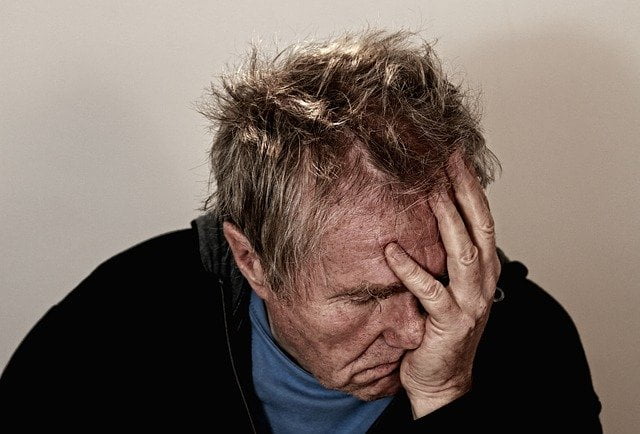- Home
- Types of Addiction
- Alcoholism and Alcohol Dependency
- The Effects Of Alcohol On The Body
The Effects Of Alcohol On The Body
In the United Kingdom, there is a mass “drinking culture” and it’s deemed socially acceptable to drink often.
However, there are many problems that can come with drinking large quantities of alcohol regularly.
The effects of drinking – whether you only have one drink or more, should be more well-known so you can decide for yourself if it’s worth it.
Drinking In Moderation VS Drinking Heavily

In England, the UK government found that over 10 million people drink alcohol above the recommended intake levels.
As a result of this, they have produced guidelines on how to drink in moderation and what may constitute someone drinking heavily.
It’s up to the individual how many alcoholic drinks they consume, but regardless – you should ensure you drink in moderation if you can.
So, what is the difference between drinking heavily and drinking in moderation?
Drinking In Moderation

Alcohol can impact your body in various different ways, which is why it is important to drink in moderation if you choose to drink.
Medical officials within the UK advise that adults should not drink more than 14 units per week, if they wish to drink alcohol.
It’s also important to note that you shouldn’t aim to drink this much if you enjoy drinking, as this is the maximum amount of units that are recommended by medical officials in the UK.
If you are drinking 14 units per week, then you are still within the guidelines of moderation, but you still may wish to consider cutting down.
It is also important to not drink alcohol every day and if you find yourself craving alcohol, you may wish to look into some options to help you reduce your intake.
If you drink in moderation, you may still experience some symptoms of alcohol use that include:
- Risky behaviours
- Lack of motor skills
- Light-headedness
- Drowsiness
- Nausea
- A change in mood
In addition to the above, drinking any amount of alcohol can increase your likelihood to develop cancer, liver issues or heart disease later in life.
Drinking Heavily

Drinking heavily within the UK counts as drinking more than 14 units of alcohol in one week.
Drinking more than this regularly could indicate a drinking problem, and there are also various issues that could arise from this.
For example, if you drink 14 units in one day and continue drinking after that, you may experience:
- Intense sweating
- Tremors
- Insomnia
- Vomiting
- Hallucinations
- Seizures
- Blackouts
- Restlessness

In some cases, drinking too many alcoholic beverages in one day can even lead to alcohol poisoning which is a serious, potentially fatal issue.
If you drink heavily and regularly, more issues are likely to arise over time.
You may develop:
- Throat cancer
- Liver cancer
- Colon cancer
- Mouth cancer
- IBS
- Heart disease
- High blood pressure
There is still the risk of death as well with drinking too much.
The Safest Amount Of Alcohol To Drink

Drinking 14 units a week is the maximum amount of alcohol that experts have recommended.
However, to be completely safe from the risks of drinking it is better to not drink at all.
Addiction VS Heavy Drinking

Whilst it is not recommended to drink heavily, drinking heavily does not always mean addiction, but it is the pathway to addiction.
There are various signs that may indicate that someone is no longer drinking heavily, and instead have begun to develop an addiction.
Addiction, simply defined, is an uncontrollable urge to abuse something that you have used.
The most common signs of alcohol addiction that you may experience are:
- Feeling ill without alcohol.
- Drinking more and more alcohol to feel the effects.
- Hiding your drinking from other people.
- Developing sleeping issues.
- Fluctuation in weight.
- Intense cravings for alcohol.
- Drinking heavily or frequently.
If you fear that a loved one may have developed an addiction, there are also various signs to look out for:
- Financial difficulties.
- Sudden changes in behaviour.
- Withdrawing from social settings.
- Only attending events where alcohol is present.
- Fluctuation in weight.
If you need to get help for alcohol addiction, please call us to get support today.
What Are The Short-Term Effects Of Drinking Alcohol?

Alcohol has both long-term and short-term effects on your body and mind.
Once you’ve started drinking, there can be various short-term effects that it will have and these will not stop until there is no longer alcohol in your system.
This does not include the period where you may experience a hangover.
The short-term effects of alcohol may include:
- Tiredness
- Euphoria
- Sudden changes in mood
- Headaches
- Nausea
- Vomiting
- Risky/impulsive behaviour
- Excitable behaviour
- Lowered motor skills
- Inability to focus
- Head fog
- Diarrhoea
- Constipation
In addition to the above, alcohol can also impact your senses – meaning that your ability to taste, smell, hear and see may change, which can also result in feeling dizzy.

These symptoms may not seem that severe, but they can be dangerous.
Lowered motor skills mean that it’s important to not operate any heavy machinery or drive when you have been drinking.
Impulsive behaviour also means it’s important to wait to until you are no longer drinking to make any major decisions as this can have unforeseen consequences.
Should you choose to go ahead with any impulsive behaviour as a result of short-term drinking, it could result in health issues or financial issues.
Lastly, due to the impact of alcohol on your motor skills, it makes simple tasks risky as well.
This means cooking, crossing roads or something as simple as showering can be dangerous as you’re at risk of becoming injured.
What Are The Long-Term Effects Of Alcohol?

Whilst the short-term effects of alcohol can be dangerous, the longer implications of drinking it can lead to many more issues.
If you choose to drink often, you might experience various issues from this.
The most common long-term effects of drinking are:
- Insomnia
- Appetite fluctuation
- Memory issues
- Concentration issues
- Anxiety
- Depression
- Irregular heartbeat
This is just a short list of the many serious complications that excessive alcohol use can cause.
What Are The More Serious Effects Of Long-Term Alcohol Use?

Long-term alcohol use can have many serious effects on each part of your body.
As such, it’s so important to stick to the public health guidelines and get help if you fear that you’re drinking too much.
The first long-term effect that you should be aware of is that alcohol can be fatal.
If you drink too much, it can result in death.
If you have been drinking for quite some time and decide to stop drinking altogether, the withdrawal process can also be fatal.
As such, it is important to drink in moderation or to offer support to a loved one if you believe they are drinking in excess.
Physical Effects Of Alcohol

One of the many ways that alcohol can impact your body is that it can make physical changes to it.
It can result in health issues that can damage your body for life.
In fact, the world health organization have advised that the use of alcohol is a factor in around 200 disease and injury conditions all over the world.
Serious physical conditions and effects of alcohol include:
- Pancreatitis
- IBS
- Liver inflammation
- Liver disease
- Liver scarring
- Diabetes
- Short-term memory loss
- Long-term memory loss
- Bloating
- Strokes
- Heart attacks
- Cancer
Given how exhaustive the list is, the above is not a full version of all the different things that you might suffer with.
Alcohol is known to cause many, many problems and there are many other physical issues that drinking can result in.
Mental Effects Of Alcohol

As mentioned previously, alcohol can have an impact on your mental health.
Short-term or long-term drinking can lead you to develop mental health issues such as depression or anxiety.
However, there are many more issues that you can develop from long-term, heavy drinking.
Alcohol impacts all of your body, but most notably it affects your central nervous system, having an effect on how you think, feel and your ability to do simple tasks.
As such, repeated heavy drinking can result in permanent alterations to the brain, resulting in the development of mental disorders having issues with things that you were previously able to do.
Some of the things you might develop as a result of the above include:
- Insomnia
- Suicidal thoughts
- Intrusive thoughts
- Psychosis
- Bipolar disorder
- Borderline personality disorder
- Extreme anger issues
- Severe depression
- Agoraphobia
Just like the physical effects, this is not an exhaustive list of the things that alcohol can do to your mind.
If you are worried that your drinking is impairing your body and mind, you may wish to get in touch with us today and we would be able to look into ways to help.
Are There Any Other Effects Of Drinking Alcohol?

When people drink alcohol, they may lose their inhibitions and do things that they might not ordinarily do.
There are many other effects of drinking heavily long-term.
People may engage in risky behaviour and display some of the following symptoms:
- Becoming socially withdrawn.
- Only attending events where alcohol is present.
- Engaging in frequent sexual encounters or a complete loss of sex drive.
- Being secretive about their drinking.
- Losing interest in other activities that were once pleasurable.
- Feeling guilty whenever drinking.
- Not being able to have “just one” drink.
However, there are also things outside of mental and physical issues that you should be aware of.
Drinking And Driving

In 2019, 5,350 people were involved in accidents as a result of drinking and driving.
Alongside this statistic, it’s estimated that 7,800 people were either killed or injured as a result of drinking and driving.
Roads are dangerous enough without bringing alcohol to the mix, so you should never drink and drive.
Financial Difficulties

Financial difficulties can often arise from repeated drinking use.
This often happens when someone has developed an addiction to drinking.
They may have an uncontrollable urge to drink regularly and consume more alcohol than previously.
Oftentimes, because they have had to drink more to feel the effects of alcohol, they may end up spending more and more money.
In addition to this, drinking has consequences on their everyday life.
They may miss work, and thus be unable to afford necessities and their job may be at risk as a result.
A lot of people who drink large quantities of alcohol regularly suffer with this issue.
As the finances can impact their job, home and money security.
Relationships

Drinking large amounts of alcohol frequently can also impact all of your interpersonal relationships.
People you care about may attempt to talk with you about your drinking, something that can drive you away.
Or you may not wish to be around certain people if they do not engage in your drinking habits.
As mentioned previously, drinking can often lead to lowered inhibitions so you may do things that you would not have considered doing sober.
From the above, you may engage in more risky behaviours that can impact any relationships you have with a significant other, or you more feel that your emotions are heightened.
If your emotions are heightened, you may be more explosive with any arguments or get upset more easily, leading to more conflicts.
Is There A Difference Between A Hangover And Withdrawal?

Hangovers are mistakenly confused with withdrawal symptoms at times.
This is because there are a couple of symptoms that overlap.
However, the two couldn’t be more different.
Hangovers tend to happen from drinking a large amount of alcohol within a relatively short period.
Withdrawal, on the other hand, happens when someone has been drinking excessive amounts of alcohol over a very long period of time.
Hangover

When a hangover happens, it means that you have drank an excessive amount of alcohol in a short space of time and your body is trying its best to filter out the alcohol.
Hangovers are caused directly by alcohol, and there are various different things that it does to your body.
Firstly, it causes issues with your brain functions, which in turn makes it difficult to sleep and for your body to retain fluids.
As a result of the above, you may feel fatigued throughout the day, which is one of the main symptoms of a hangover.
The inability of your body to retain fluids also means that you will likely suffer from a headache and extreme thirst.

In addition to brain function issues, alcohol can also cause inflammation to various parts of your body.
The above means that you can feel nauseous or even end up vomiting as a result of it.
Hangovers of course do many more things to your body, and if you’re drinking regularly you may notice symptoms getting worse.
It’s important to get help if you feel that your drinking may be becoming a problem.
Other symptoms of a hangover include:
- Excessive thirst
- Headache
- Vertigo
- Sweating
- Increase in blood pressure
- Nausea
- Change in appetite
How much you have drunk will determine the severity of the hangover.
Hangovers can also last anywhere from a few hours to a few days depending on how many units you have consumed.

It’s also important to note that hangovers can vary from person to person.
Even if two people drank the same amount, it’s unlikely both would have similar hangovers.
Hangovers have no cure, although there are many places online that will try to convince you otherwise.
Instead, you simply have to wait until the symptoms pass and the alcohol is no longer in your body.
Your body also needs time to heal from the substance – as alcohol will have damaged your body.
During this time it’s important to rest and stay hydrated.
It is recommended that you do not drive or operate heavy machinery should you have a hangover as well, due to the excessive fatigue that you may still have.
Withdrawal

Withdrawal is very different to a hangover, and there are various different levels of this depending on how much and how often you have drunk alcohol.
If you have drunk large quantities of alcohol over a long period of time, then you may struggle with withdrawal.
Alcohol impacts your body and mind, and it can slow down brain function.
If you drink regularly, it can impact your central nervous system to the point it becomes dependent on alcohol.
When you no longer have alcohol in your system, your brain and body will react negatively to this because of it’s dependence.
Alcohol withdrawal can be deadly, so if you have been drinking heavily for quite some time and suspect that you have an addiction, it’s important to get help and undergo detoxification.

This is so that your withdrawal can be managed in a safe environment, where medical experts can ensure you have a safe recovery.
The symptoms of alcohol withdrawal include:
- Vomiting
- Seizures
- Nausea
- Hallucinations
- Fever
- Death
- Suicidal thoughts
- Depression
- Paranoia
- Anxiety
Due to the severity of these symptoms, it is important to seek out medical intervention if you have been drinking heavily for some time.
This is so that you can be assessed and given medication to minimize the risk of extreme withdrawal effects.
Treatment

The effects of alcohol on the body can be dangerous and, oftentimes, terrifying.
In particular, if you find yourself drinking more and more and engaging in secretive behaviours, you may wish to talk to someone about alcohol addiction.
There are a great deal of people who suffer from addiction, and there is no shame in getting help.
Addiction can happen to anyone, and given the drinking culture in the UK, it is so easy to develop an addiction to alcohol without realizing it.
As a result of this, if you or a loved one may have an addiction,we urge you to get in touch with us today so that we can look at some treatment options.

Alcohol can be fatal, but with our experts we can ensure that you have the right help to ensure that it does not turn deadly.
There are five stages to our treatment:
Through the second stage in particular, we will assess what your needs are, how much you drink, how often and what kind of detoxification you need.
Our medical experts will ensure that if you are at risk of more severe symptoms of withdrawal, then you will be put onto medication and have 24/7 medical support.
During the detoxification period, alongside the medical support, you will also have access to mental health treatment.
Where Can I Get Help?

If you would like to get immediate help for alcohol addiction for you or someone that you care about, click here to talk with our experts today.
No matter where you are with your addiction, we are here to help.


